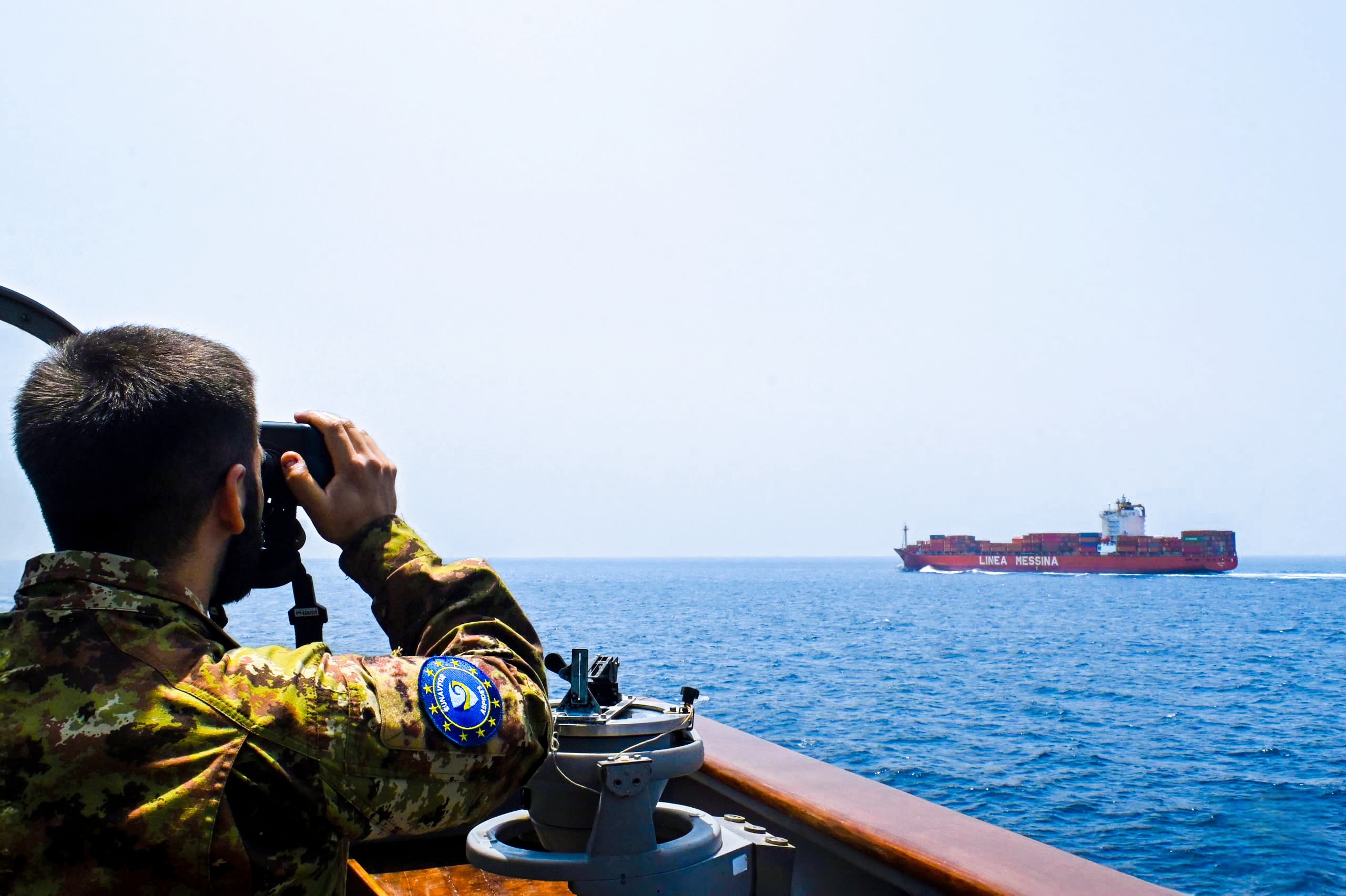The European Union announced the success of its naval mission "Aspides" in securing the passage of approximately 1,200 commercial ships through the southern part of the Red Sea since the operation began in February 2024, amid escalating security threats posed by Houthi attacks on international shipping lanes.
The naval mission "Aspides" stated in a statement published on its official account on the "X" platform (formerly Twitter) yesterday, September 19, that its mission has reached the 19th month since its launch, confirming that "the steadfast commitment of all its members has enabled it to face significant challenges and contribute to enhancing maritime security and regional stability."
The mission attached its tweet with a video clip showing some of its operations, confirming that its naval forces provided support and close protection to more than 1,177 commercial ships while transiting the maritime corridors south of the Red Sea, which is the sector most vulnerable to attacks by the Houthi group since late 2023.
* Ongoing European Support and Regional Cooperation
The mission confirmed that the participating naval vessels, equipped with advanced technology and trained crews, have been "supporting the ongoing maritime presence of the European Union and working jointly with regional partners to enhance maritime security and protect vital global trade routes."
"Aspides" also renewed its full commitment to "supporting freedom of navigation and enhancing the security of maritime routes in one of the most vital and vulnerable maritime corridors in the world," emphasizing that it operates "with full respect for international law."
* Launch of the Mission and Its Base
The "Aspides" mission was launched on February 19, 2024, as a direct response to the escalation of Houthi attacks on commercial ships in the Red Sea and the Gulf of Aden.
The fleet is based in the city of Larissa in Greece and includes naval formations from 21 European countries, comprising warships, frigates, and a multinational crew.
* The main tasks of the European naval force include:
_ Escorting and protecting commercial ships from threats
_ Monitoring and analyzing potential threats
_ Enhancing maritime awareness
_ Exchanging security information in coordination with regional and international partners.
* Background of the Tensions
It is noteworthy that the Red Sea and the Gulf of Aden have witnessed an increase in attacks on international ships since late 2023, following the Houthi group's announcement of targeting Western and Israeli interests in light of developments in the region, which prompted international parties, including the European Union, to intervene to protect navigation and ensure the security of global trade supplies.

